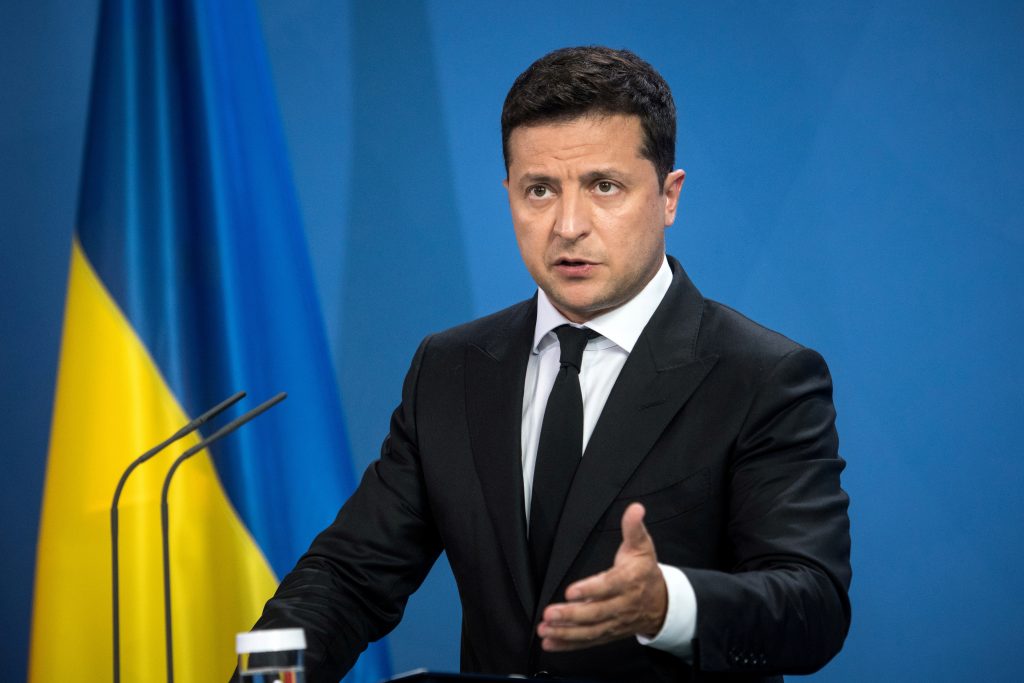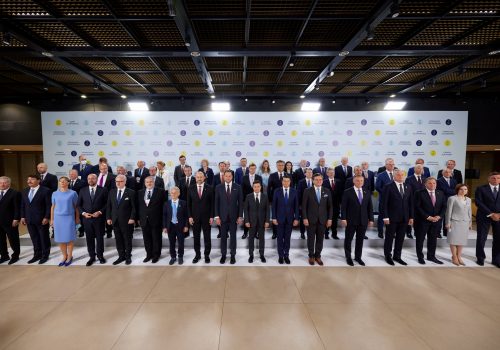Ukrainian President Volodymyr Zelenskyy has announced an extraordinary meeting on September 16 in a bid to prevent his flagship judicial reform drive from being sabotaged. Zelenskyy himself will host Thursday’s meeting, which will be attended by the heads of Ukraine’s judicial bodies including the chairman of the Council of Judges along with representatives of the country’s Supreme Court, members of parliament, and G7 ambassadors.
“I will keep from derailing the main reform of the country, which I promised Ukrainians and which I initiated,” Zelenskyy commented in a strongly worded statement released on Monday to announce the forthcoming meeting. “Every illegal action aimed at blocking judicial reform will be immediately evaluated and rebuffed. I will not allow judges who hamper the reform and cleanup of the judicial system to deprive Ukrainians of the right to justice. And judges who want to work in a transparent system should have our full support.”
Stay updated
As the world watches the Russian invasion of Ukraine unfold, UkraineAlert delivers the best Atlantic Council expert insight and analysis on Ukraine twice a week directly to your inbox.
Zelenskyy’s fighting talk was sparked by the September 13 failure of the Council of Judges to nominate judicial members to the country’s Ethics Council, which serves as a pivotal body for Ukraine’s entire judicial reform drive.
The Ethics Council, which consists of three judicial members and three international experts, is the body entrusted with the task of vetting both sitting and potential members of Ukraine’s main judicial body, the High Council of Justice. While existing legislation gives prevailing powers to the three international members of the panel, the Ethics Council cannot be established without at least one of an anticipated three judicial members.
Critics say the failure to nominate judicial members to the Ethics Council is a clear case of vested interests within the Council of Judges, who stand accused of deliberately attempting to block the launch of meaningful judicial reform.
Such maneuvers are nothing new. Ukraine’s rule of law shortcomings have long been recognized as the country’s most pressing reform priority, but successive governments have been unable to overcome deeply entrenched opposition from the ranks of the Ukrainian judiciary.
Thursday’s meeting is an apparent attempt by President Zelenskyy to mobilize supporters of judicial reform within the Ukrainian establishment while also leveraging the backing of the country’s G7 partners. The outcome may well determine the future prospects for judicial reform.
Eurasia Center events

During their forthcoming negotiations with President Zelenskyy, representatives of the judiciary are expected to push for amendments to current legislation in order to ensure a more meaningful role for Ukrainian judges on the Ethics Council. Opponents of this step believe it is essentially a stalling tactic designed to undermine the entire judicial reform agenda.
If judges are successful in securing presidential approval for their proposed amendments, the next step would likely involve a challenge to the relevant law in Ukraine’s Constitutional Court. In this scenario, it would then take a few months before the Constitutional Court was able to cancel the creation of the Ethics Council and push the entire judicial reform agenda back to square one.
At the same time, it it is important to note that it would be almost impossible for the Constitutional Court to cancel any decisions passed by the Ethics Council if they were taken before the Constitutional Court’s own ruling on the Ethics Council. Advocates of judicial reform argue that this helps explain why the Council of Judges is now effectively blocking the establishment of the Ethics Council and suggesting amendments, as the parliamentary process this envisions may take several months and would buy precious time for the Constitutional Court to act.
With this in mind, supporters of judicial reform believe it is crucial that no agreements are reached during Thursday’s showdown regarding possible amendments to the law or other delays. Instead, they note that the Council of Judges is obliged by law to nominate judicial members to the Ethics Council and must be persuaded to do so without further delay.
Few would argue that Ukraine’s flawed legal system has held back the country for decades. It has robbed Ukraine of international investment and played a key role in maintaining the dominance of the oligarch elite. President Zelenskyy is well aware of this and has declared it his mission to achieve a breakthrough towards the rule of law. However, he is now discovering that judicial reform is arguably the toughest challenge facing any Ukrainian leader. By the end of this week, we should have a clearer idea of whether he can hope to succeed where his predecessors have failed.
Halyna Chyzhyk is an expert on the judiciary at the Anti-Corruption Action Center.
Further reading
The views expressed in UkraineAlert are solely those of the authors and do not necessarily reflect the views of the Atlantic Council, its staff, or its supporters.

The Eurasia Center’s mission is to enhance transatlantic cooperation in promoting stability, democratic values and prosperity in Eurasia, from Eastern Europe and Turkey in the West to the Caucasus, Russia and Central Asia in the East.
Follow us on social media
and support our work
Image: Ukrainian President Volodymyr Zelenskyy has this week vowed to prevent judicial reform from being derailed. (Stefanie Loos/Pool via REUTERS)




